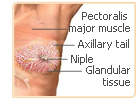Red Clover Benefits
 In ancient times red clover was considered a sacred plant that brought good luck, prosperity, and health to all those who wore it. This belief was founded on the number of health benefits red clover has, ranging from reducing the risk of a stroke to treatment in some menopause symptoms. In ancient times red clover was considered a sacred plant that brought good luck, prosperity, and health to all those who wore it. This belief was founded on the number of health benefits red clover has, ranging from reducing the risk of a stroke to treatment in some menopause symptoms.
Even healthy people can benefit from red clovers' medicinal properties as it contains plenty of vitamins, minerals, and amino acids which help the body's cells to remain strong.
 The Chinese noticed early on that red clover was able to rid the blood and liver of toxins by acting as a diuretic and helping the body get rid of excess fluid. The Russians also used it to treat respiratory infections and nasal congestion. The Chinese noticed early on that red clover was able to rid the blood and liver of toxins by acting as a diuretic and helping the body get rid of excess fluid. The Russians also used it to treat respiratory infections and nasal congestion.
Another of red clovers' benefits is that it is an expectorant and helps to clear the lungs of mucus. The Irish used red clover in tea to treat their coughs while. The Romans made use of red clovers� medicinal properties by fermenting it into a wine to treat kidney stones.
General Benefits of Red Clover
Red clovers� benefits are mainly derived from the flower heads from which the herb takes its name. Red clover has many benefits: it contains coumarins, a substance that thins and purifies the blood. This was of particular importance in ancient times, when people believed that purifying the blood was key to curing a range of ailments.
Red clover is also high in minerals and vitamins such as vitamins A, B, and C and these are important in maintaining and regenerating cells in the immune system.
Specific Red Clover Benefits
 Menopause: Unlike for cardiovascular health or cancer, red clovers' benefits have been more concretely proven to help relieve the symptoms of menopause. In addition to being rich in many of the vitamins and minerals that the body needs to stay healthy, red clover also contains isoflavones. Menopause: Unlike for cardiovascular health or cancer, red clovers' benefits have been more concretely proven to help relieve the symptoms of menopause. In addition to being rich in many of the vitamins and minerals that the body needs to stay healthy, red clover also contains isoflavones.
Similar to estrogen, isoflavones have a similar effect on the body. Many of the symptoms of menopause are driven by the dip in estrogen, which marks the onset of menopause and can cause problems such as mood swings and hot flashes.
Isoflavones augment and stabilize these lowered hormonal levels, allowing the body to rest in a state of equilibrium. There is also preliminary evidence that isoflavones can boost bone mineral density and slow bone loss in women going through menopause.
Cardiovascular health: Researchers continue to investigate red clover�s effects on cardiovascular health. Its isoflavones have been shown to boost "good" HDL cholesterol in pre and post-menopausal women. It has also been found to provide stronger arteries with increased flexibility of the artery walls.
Skin conditions: Red clovers� oils have mild inflammatory properties that are helpful in treating dry skin caused by eczema. This problem is best treated with a tincture. or the less serious affliction of insect bites or stings, a freshly crushed flower applied directly to the wound is all that is needed. Chinese scientists have also proven that red clover helps to kill viral and fungal infections.
 Cancer: The benefits of red clover are such that its anti-cancer agents have traditionally been used to treat cancerous wounds that appear on the skin. Modern researchers have begun testing red clovers' benefits with regards to cancer. So far, there is some evidence that red clover may stop the growth of some types of cancer. Cancer: The benefits of red clover are such that its anti-cancer agents have traditionally been used to treat cancerous wounds that appear on the skin. Modern researchers have begun testing red clovers' benefits with regards to cancer. So far, there is some evidence that red clover may stop the growth of some types of cancer.
It is important to note however, that the properties of red clover mimic estrogen closely and for this reason, it may also contribute to some forms of cancer, the way estrogen does. Thus, red clover should not be used to treat cancer until further research is undertaken.
Red clover has a range of health benefits but as with most phytoestrogenic herbs, it can cause dangerous side effects. The next section continues to explain these side effects in more detail.
Conclusions about Red Clover
Red clover is great for treating some menopause symptoms, but as a phytoestrogenic herb can cause a number of harmful side effects. Red clover has been criticized because it can interfere with the treatment of breast cancer.
Other alternative treatments are just as effective as red clover, but without the side effects. Non-estrogenic herbs, for example, are a great option for treating menopause symptoms. Read more in the following article.
Which herb should women try? Today women are looking for relief from their menopause symptoms with herbs. Phytoestrogenic herbs and non-estrogenic herbs are good in relieving menopause symptoms, but recent studies show that non-estrogenic herbs have no side effects because they help the body to produce its own hormones instead of introducing hormones like the phytoestrogenic ones. Learn more about non-estrogenic herbs for menopause.
| 

